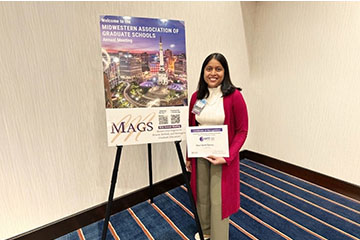Advances in new sustainable fabrics
New uses for the Abacá plant
A tropical plant may hold the key to a more sustainable textile industry— Central Michigan University students are putting it to the test. Fashion merchandising and design majors, Zoe Renner and Cullen Douglas are working on an exciting fabric project using Abacá. This project focuses on developing Bananatex, the first durable, biodegradable and plastic-free fabric. Abacá, a relative to the banana tree, is the plant source for this new fabric. Naturally hardy, Abacá thrives without pesticides, fertilizers, or large amounts of water. These traits help promote biodiversity and economic sustainability and Renner and Douglas hope that the new fabric will be a more eco-friendly alternative to cotton.
Renner and Cullen are testing Bananatex using a thermal mannequin which is designed to simulate human body temperatures. The mannequin allows them to monitor temperature and sweat levels induced by the fabric. They also perform dry testing to evaluate the fabric’s properties without incorporating moisture. The combination of these tests allows researchers to measure how the fabric would perform in real-world conditions.
Runner and Cullen appreciate the assistance of Lauren Agnew, laboratory coordinator for the Center for Merchandising and Design Technology, and faculty member Tanya Domina. The students recently participated in the CMU 2025 Student Creative & Research Endeavors Exhibition (SCREE) and will also share their work at the American Association of Textile Colorists and Chemists (AATCC) conference. The students have received funding support from AATCC and a grant from the CMU Office of Research and Graduate Studies. Ultimately, the students hope to expand their research by testing a larger variety of clothing.




